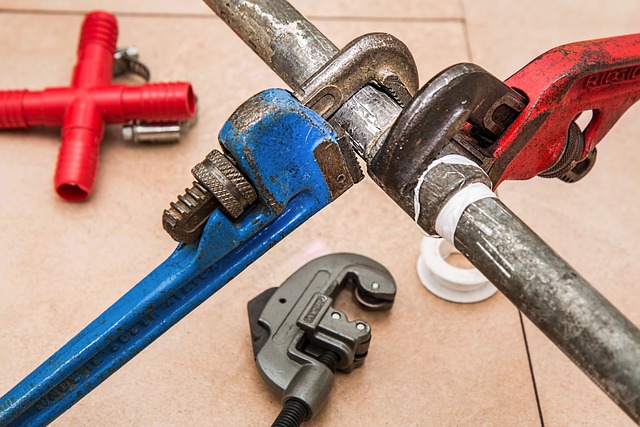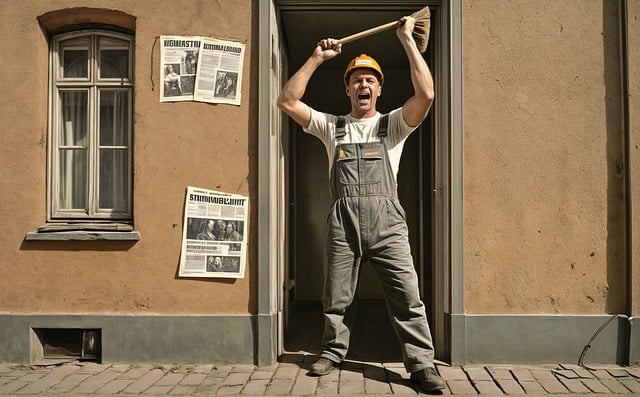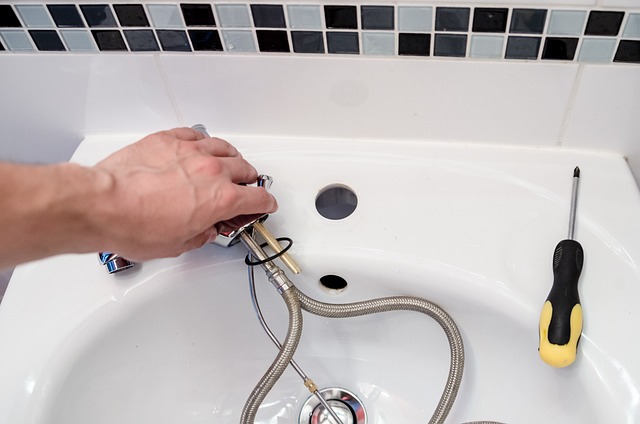Upgrading plumbing systems with a professional plumber in San Diego is key for enhancing water efficiency and conserving resources. Outdated plumbing often leads to significant water loss, which modern fixtures like low-flow toilets, showerheads, and faucets can mitigate without compromising user experience. These upgrades, such as installing dual-flush toilets or smart irrigation systems, not only save water but also lower utility costs over time. A plumber’s assessment is essential for identifying inefficiencies and recommending the most suitable upgrades tailored to your home’s needs. By doing so, you’re preparing your home for future water regulations and contributing to environmental sustainability. The article suggests that investing in these water-saving fixtures and technologies with a plumber’s guidance is not just beneficial for immediate savings but also serves as a forward-thinking investment for long-term conservation efforts.
When it comes to enhancing your home’s efficiency and promoting water conservation, plumbing upgrades are key. This article delves into the transformative power of modernizing your plumbing system, offering insights into the latest fixtures and technologies that can significantly reduce water usage without compromising on performance. From selecting the right water-saving showerheads and faucets to understanding the impact of pipe material on efficiency, a plumber’s expertise is crucial at every step. We explore top-notch plumbing fixtures and technologies for efficiency, highlighting high-efficiency toilets, tankless water heaters, and smart home integration for seamless water management. Discover the environmental and financial advantages of energy-efficient appliances and learn how to maintain them effectively after installation. With case studies showcasing successful upgrades and tips for eco-friendly plumbing practices from seasoned professionals, this guide will help you navigate building codes and regulations with confidence. Whether you’re considering a DIY project or seeking a trusted plumber to assist with your efficiency upgrade, this article is your comprehensive resource.
- Understanding the Necessity for Modern Plumbing Upgrades
- Assessing Your Current Plumbing System
- The Role of a Professional Plumber in Upgrade Planning
- Top Plumbing Fixtures and Technologies for Efficiency
Understanding the Necessity for Modern Plumbing Upgrades

As communities and households alike strive to balance water usage with conservation efforts, the role of modern plumbing upgrades becomes increasingly pivotal. Outdated plumbing systems often lead to significant waste, as they are frequently less efficient than contemporary fixtures and infrastructure. A seasoned plumber can assess your current system, identifying areas where leaks or inefficiencies may be quietly impacting your water bill and the environment. By upgrading to newer models of showerheads, faucets, and toilets, which are designed with water conservation in mind, households can reduce their water consumption substantially without compromising on comfort or functionality. These advancements not only cater to the immediate need for water efficiency but also prepare homes for future regulations that may impose stricter water usage limits. Engaging a plumber to implement these upgrades is a proactive step towards sustainability, ensuring that your plumbing system is equipped to meet the demands of conservation while maintaining the highest standards of hygiene and convenience.
Investing in modern plumbing upgrades is not merely a response to current water scarcity issues but also a strategic move for long-term sustainability. The latest technologies in plumbing, such as low-flow toilets and aerators for faucets, have been engineered to provide ample water pressure and usage without the unnecessary consumption of our precious resource. A plumber can guide homeowners through the selection and installation process, ensuring that each upgrade is tailored to their specific needs and local water conditions. Moreover, these improvements often come with the added benefit of potential savings on utility bills, making the initial investment a cost-effective decision over time. As such, the decision to modernize your plumbing is not just an option but a responsible choice for any household looking to play a part in global water conservation efforts.
Assessing Your Current Plumbing System

When considering upgrades to your plumbing system for improved efficiency or water conservation, the first step is a thorough assessment of your current setup. Engaging with a skilled plumber is paramount; their expertise can pinpoint areas where water may be wasted, identify leaks that could be silently undermining your water reserves, and suggest modern fixtures and technologies designed to minimize water usage without compromising on performance. During this evaluation, the plumber will inspect all aspects of your plumbing, from the pipes and valves to the faucets and toilets. They may recommend low-flow showerheads or dual-flush toilets, which are specifically engineered to use less water while maintaining functionality. Additionally, the plumber can assess the efficiency of your water heater, ensuring it operates at peak performance to prevent energy waste. This initial assessment lays the foundation for tailored upgrades that will lead to significant water savings and cost reductions over time. By understanding your current system’s capabilities and limitations, you can make informed decisions about which upgrades will offer the most substantial benefits for your specific plumbing infrastructure.
The Role of a Professional Plumber in Upgrade Planning

When considering upgrades to plumbing systems for efficiency or water conservation, the expertise of a professional plumber is invaluable. These trained specialists possess a comprehensive understanding of both modern and traditional plumbing infrastructure, which enables them to identify areas ripe for improvement. A seasoned plumber can assess your current system, pinpointing leaks, outdated fixtures, and inefficient designs that may be wasting water or leading to energy loss. Their role extends beyond mere detection; they offer tailored solutions that align with your specific needs and the unique characteristics of your property. By leveraging their knowledge of the latest technologies and materials, such as low-flow toilets, aerators for faucets, and advanced pipe insulation, a professional plumber can design an upgrade plan that maximizes efficiency while minimizing water waste. Their guidance ensures not only a seamless integration of new fixtures but also adherence to local building codes and regulations, thereby avoiding potential legal complications or safety issues. In essence, the role of a professional plumber in upgrade planning is multifaceted, encompassing technical expertise, regulatory compliance, and cost-effective solutions, all aimed at achieving optimal water conservation and operational efficiency for your plumbing system.
Top Plumbing Fixtures and Technologies for Efficiency

When considering upgrades to enhance plumbing efficiency and water conservation, homeowners and businesses alike turn to advanced fixtures and technologies that offer significant savings on water usage without compromising on functionality. Modern toilets, for instance, have come a long way from their predecessors. Dual-flush models allow users to select between a full flush for solid waste or a half flush for liquid waste, thereby reducing gallons per flush (GPF) and conserving water. These high-efficiency toilets (HETs) are a must-consideration for any plumbing overhaul, as they can slash water consumption by up to 20% compared to older models. Another critical innovation is the low-flow showerhead. These fixtures limit water flow without impairing pressure, ensuring a comfortable experience while using significantly less water—typically around 1.5 to 2.5 GPM.
In the realm of plumbing efficiency, the role of a skilled plumber cannot be overstated. Their expertise is instrumental in installing these fixtures correctly and ensuring they function as intended. For example, aerators on faucets are simple yet effective tools for water conservation. A plumber can easily replace existing aerators with low-flow models that mix air with water to maintain performance while reducing water use by up to 50%. Similarly, the installation of smart irrigation systems by a professional plumber can revolutionize outdoor water usage. These systems optimize watering schedules based on local weather conditions, soil moisture, and plant water needs, significantly reducing water waste due to overwatering. By integrating these technologies, homeowners and businesses can achieve substantial water savings and contribute to sustainable water management practices.
In concluding, the pursuit of modern plumbing upgrades represents a pivotal step towards enhancing both water efficiency and overall system performance. Homeowners and businesses alike can significantly benefit from assessing their current plumbing systems, as outlined in the article, to identify areas for improvement. The expertise of a professional plumber is indispensable when it comes to planning these upgrades, ensuring that the chosen fixtures and technologies align with your specific needs and contribute to long-term savings. With an array of innovative plumbing solutions now available, there’s no better time to make the switch to more efficient systems. Investing in such advancements not only conserves a precious resource but also positions you at the forefront of sustainable living practices.
